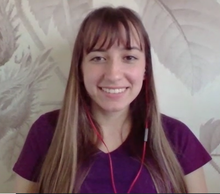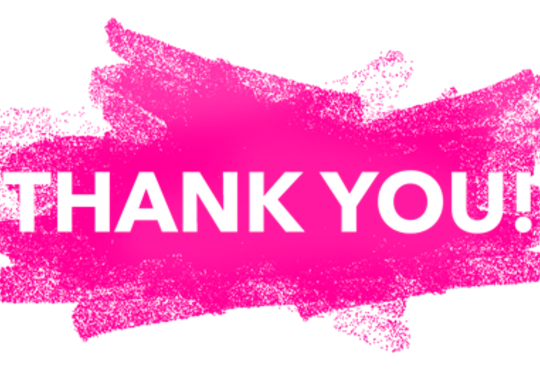 As a little girl, Sophie Janszen-Spitman had always been good at math. She liked participating in math contests, but as she progressed through high school, she noticed fewer and fewer girls participating alongside her.
As a little girl, Sophie Janszen-Spitman had always been good at math. She liked participating in math contests, but as she progressed through high school, she noticed fewer and fewer girls participating alongside her.
In grade 10, Janszen-Spitman’s mom encouraged her to sign up for Waterloo’s Think about Math program, designed for high school girls to foster their enthusiasm for the subject. At the time, Janszen-Spitman had no idea that being accepted to the program would change the course of her studies and put her on a path to become a second-year math and business student at Waterloo.
“Think about Math was the first time that I recognized I could pursue math as an option,” Janszen-Spitman says. It was also the first time she had visited Waterloo’s campus and met other women working in the math field. One of the speakers she met handed out tea bags with inspirational messages on them. Janszen-Spitman’s tea bag read, “I am smart enough.”
“I love tea and math — this message was meant for me, and I still have it,” she says. Janszen-Spitman keeps her tea bag as a reminder to not give up. “Even when other girls around me were leaving math, I felt a duty to represent.”
Hear from Janszen-Spitman and her female colleagues on what it’s like to be a woman in math
Women in math are not alone at Waterloo
Janszen-Spitman is no longer one of a few women in math at Waterloo. She feels supported by her strong group of friends, who even during this time of physical distancing, make it a point to connect online every week. She also remembers the affirming time she spent at Waterloo as a high school student and wants to pay it forward to the girls coming along behind her. “I volunteered last year for Think about Math … I was part of the first-year student panel,” Janszen-Spitman says. She loved the opportunity to share her experience and offer advice.
“If you are one of a few girls, I think it is expected that you will shrink away and not be part of the conversation,” Janszen-Spitman says. Her advice to other women thinking about pursuing math is to go for it and speak up. “Don’t take a sideline spot. Get a chair and actively participate in the conversation.”
Building on a Waterloo tradition
Waterloo has a long history of encouraging women like Janszen-Spitman in Math. In fact, the first bachelor of mathematics degree to be awarded from the University was to Jean Elizabeth Anthes. Since that day, another 13,476 women have received degrees from the Faculty of Mathematics.
Anita Layton, associate dean of research and international in the Faculty of Mathematics, is passionate about continuing to recognize and celebrate women in math and all STEM fields. Layton chairs Waterloo’s Research Equity, Diversity and Inclusion Council and speaks to women on breaking stereotypes and understanding that the pathway to success doesn’t always look the same for everyone.
“For whatever reason, I never bought into the stereotype that math wasn't for girls. Or that to succeed as a mathematician, you must put math above everything else: ‘Go ahead and neglect your friends, your family, or even your health because there should only be space for math in your head’. I don't buy that,” Layton says. “There are so many dimensions in my life other than math, and that is ok. And there are many paths to success in math! I would particularly like to share these thoughts with the young women.”
Layton will get her chance to share this wisdom with women and allies from around the world on May 12 at the Women in Math Celebration.
Waterloo Women’s Impact Network
May 12 is International Women in Math Day — an opportunity to celebrate the accomplishments women have made to the field of mathematics around the world. And what better way to celebrate than by officially launching the new Waterloo Women’s Impact Network (WWIN).
WWIN aims to make Waterloo the best place in the world for women in mathematics and computer science to study. The network will also connect alumni currently in math and tech careers and support programming that cultivates the curiosity of young girls for mathematics and computer science.






